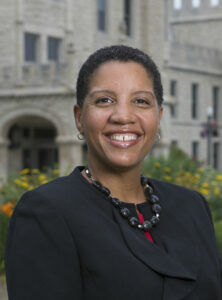
We are excited to feature this post written by Renique Kersh, Ph.D., Associate Vice Provost for Student Engagement and Success.
In her book Rebel Talent: Why it Pays to Break the Rules at Work and in Life, author Francesca Gino describes how we often view “rebels” as trouble makers who break the rules and cause harm. What she discovered, however, is that often times “rebels” break the rules and break out of traditions and comfortable spaces in an effort to effect positive change.
We see this in stories like José Antonio Bowen, the former president of Goucher College whose unconventional view of a liberal arts education resulted in a new educational paradigm that prioritizes relationships, resilience and reflection. He notes that:
If we want the new learning economy to be inclusive, we will need education to focus more on the potential we release and less on the content we input: graduates will need to be voracious self-regulating learners.
Bowen ultimately hopes that as a teacher, he will make himself obsolete. Of course, he is not truly suggesting that one day he will wake up without a job, but instead, as a rebel, he is suggesting that a sign of success as an educator is knowing that his students have learned to ask good questions and seek new information. Like crafting a beautiful piece of art, he suggests that students are more than just bright-eyed dualists waiting to learn from him, but instead are unique individuals with hidden potential that is waiting for the right motivation to shine. Bowen exemplifies the type of rebel that Francesca Gino describes.
Being a “rebel” with a cause suggests that as faculty, you are willing to take risks, challenge yourselves and your students, think differently and, at times, unconventionally, understanding that in doing so, you level the playing field for the students in your classrooms. You show vulnerability and suggest that it is okay not to know all the answers, but instead that the classroom is a place where discovery is a given, failure results in learning, and reflection leads to the kind of cognitive dissonance that shapes new ways of thinking and knowing. Being a rebel for student success suggests that as faculty, you are not afraid to challenge old paradigms, try out new and engaging pedagogy, or leverage the relationship that you build with students to both challenge and support them through their journey in your course.
Be bold in your intention, brave in your approach, and innovative in your thinking…
Be bold in your intention, brave in your approach, and innovative in your thinking because as a rebel with a cause, student success, you will reduce achievement gaps, inspire new thinking, challenge traditional pedagogy and facilitate positive outcomes for your students and the institution at large.


